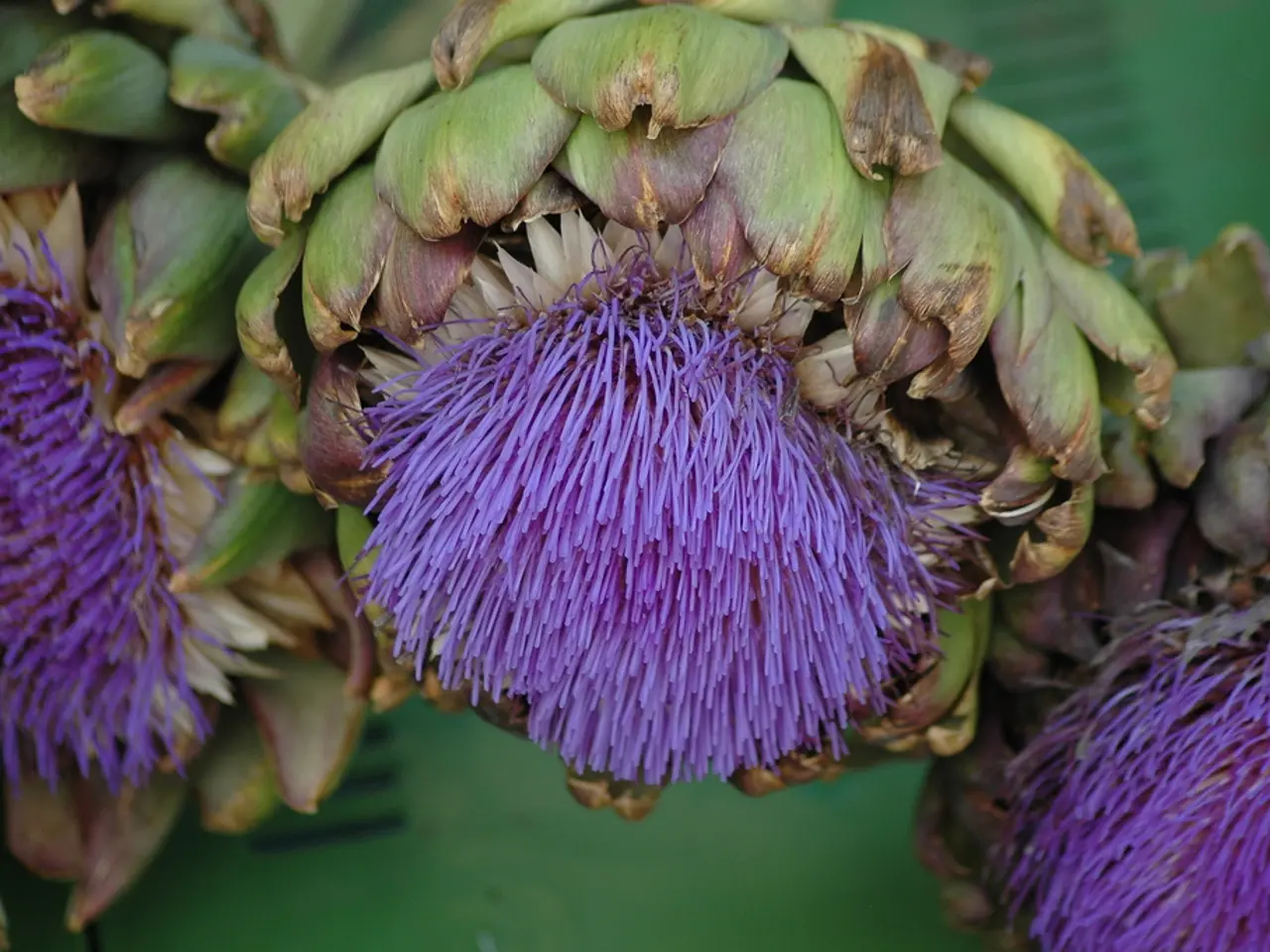Exploring the Nutritional Worth of Artichokes: A Deep Dive
Artichokes, a Mediterranean native once classified as a thistle, have found a place in kitchens around the world. These versatile vegetables offer a unique flavor and a host of health benefits.
Originating from Turkey and Persia to North Africa and Spain, artichokes have made their way into various cuisines. Once cooked, they can be used in pasta dishes, pizzas, baking, rice dishes, soups, salads, dips, salsas, roasts, and more.
When it comes to health, artichokes pack a nutritional punch. They contain significant amounts of vitamins C, K, B6, Thiamine, Riboflavin, Niacin, Folate, Iron, Magnesium, Phosphorus, Potassium, Calcium, Zinc, and fiber. Eaten raw, they provide 25% of your Vitamin C DV, 24% of Vitamin K DV, 22% of folate DV, 19% of magnesium DV, 12% of phosphorus DV, and 14% of potassium DV.
Artichoke leaf extract has been found to have potential health benefits. It may help regulate blood pressure, keep blood vessels wide enough to facilitate a healthy flow of blood, and help the liver function by repairing damage and increasing the rate at which bile is produced. However, more research is needed to fully understand its effects on blood sugar levels.
Artichoke leaf extract might also help lower cholesterol levels, balancing the 'good' (HDL) cholesterol and the 'bad' (LDL) type. It's also rich in fiber, particularly inulin, which is good for promoting healthy digestion and may be beneficial for those with irritable bowel syndrome (IBS).
The alpha-glucosidase enzyme might be the key to artichoke's potential blood sugar lowering effects. Research suggests that artichokes could play an active role against heart disease, some cancers, lung disease, and age-related eye disease due to their abundance of antioxidants.
Artichokes have shown potential in slowing the growth of cancer cells and other cancer therapies, but this research is still in its early stages. It's important to note that artichoke allergies are extremely rare, but those allergic to other plants of the aster family might be at higher risk.
When selecting a ripe artichoke, look for weight, a squeak when squeezed, slightly opened leaves, and no signs of peeling. Artichokes can last between 5 to 7 days in the fridge, with the stem cut off, sprinkled with water, and placed in a plastic bag.
While more research is needed to fully understand the health benefits of artichokes, their unique flavor and versatility make them a worthwhile culinary addition. Whether eaten raw or boiled, artichokes are high in nutritional value. They are made up of thorny outer leaves, a feathery choke, and a fleshy heart. Eaten raw, they taste slightly bitter, similar to asparagus or celeriac.
Jerusalem artichokes, a different genus and a type of sunflower, are also worth mentioning. They have a sweet flavor and potato-like texture. Despite their name, they are not related to the globe artichoke.
In conclusion, artichokes, whether from the Mediterranean or Jerusalem, are a nutritious and versatile addition to any meal. Their potential health benefits, particularly in heart health, diabetes management, and cancer prevention, make them an exciting area of ongoing research. However, as with any dietary change, pregnant or breastfeeding women and those with bile duct obstruction or gallstones should consult a doctor before consuming artichokes.





